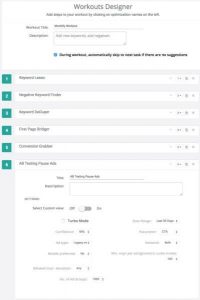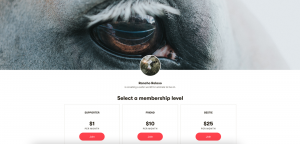A couple of weeks ago, I received an email from someone who was recently laid off from his job. This guy was an acquaintance. I had met him before at events, but only in passing. So, I didn’t have direct work experience with him, I wasn’t a fellow colleague and he wasn’t a friend. I steered him to my weekly Talking Points e-newsletter, where I share open positions weekly. And I spent a few minutes on the phone with him providing advice.

This is a pretty common occurrence–I get these types of inquiries routinely. Partly because friends and colleagues send people my way. And partly because some people apparently think I’m a full-time recruiter (insert smiley face emoji here)!
All jokes aside, over the years, I’ve heard a lot of questions from job seekers. Many of the same questions, in fact. So, I thought I’d document some of the more common questions I’ve received and my answers (including a few questions from current job seekers)–mostly to share with all the people I’m sure to meet with in the months and years ahead! (insert second smiley emoji face here).
Question: Should I try to network through organizations like MIMA, IABC, and MN PRSA? If so, where should I start?
Organizations like these are great places to network and learn new skills. It’s really where I started honing my PR chops 20 years ago! But, it’s not a 2-3-month commitment. It’s not something you just jump into and then leave once you find that new job. It’s a LONG-TERM commitment. I would encourage any job seeker to join any of these organizations and to volunteer. Because that’s the key. Signing up and plunking down money is the easy part–anyone can do that. It’s the volunteering where you meet people, form relationships and really start to see the benefits. But, those benefits don’t show up for a while. It’s a long-tail approach and not something that will really benefit your immediate job-seeking strategies. That said, I definitely recommend it.
Question: When I’m looking for jobs, I notice some jobs that require a wide variety of skills, some of which I’m qualified for and some of which would be a bit of a stretch. Is there any reason why I should NOT apply for these types of jobs?
Absolutely not. Companies and hiring managers typically develop job descriptions fully knowing they’re not going to get everything they’re asking for. The social media unicorn debate immediately comes to mind. But, they post it anyway because they want to see what it will turn up. I like to think about the famous Wayne Gretzky quote, which I think is highly relevant in this case: “You’ll miss 100% of the shots you do not take.” Take the shots. All of them. What’s the worst thing that will happen?
Question: What skills are in highest demand right now?
Let me preface this one with the following disclaimer: I am not a professional recruiter, nor have I ever claimed to be one. But, the big skills I hear the most need for right now include: audio production (everyone is asking about podcasts right now); video production (seems like companies are always outsourcing this); influencer marketing (growing and not a ton of people who do this well right now); and social media ad management (still really hard to find people who are really good at this).
Question: Where’s the best place(s) to look for new jobs?
The hidden job market! If I were searching for a job, I would definitely have alerts set up on LinkedIn and Indeed. But, I wouldn’t expect that to turn up a whole lot. Instead, I would focus on putting much more time and energy into my networking. I would schedule 3-5 coffees a week (if you are not currently working), and 1-2 (if you are currently working). You do that for 6-8 weeks and I can almost guarantee you something will turn up.
Question: Who do you know that would be good for me to connect with? Not necessarily because they might have an opening. But because of what I can learn from them about the sector on which I’ve set my career sights.
Obviously, this is a big question almost all job seekers have. But, the trick is to make it as easy as possible for the person you’re meeting with to do the connecting. Case in point: Don’t tell me you’re looking for a senior-level job in strategic communications and you’d like to meet anyone I might recommend that could help with that. That’s just way too broad. Instead, say: “I’m looking for a job in strategic communications in the health care sector in MSP. Who do you know in management at some of the top health care firms in town I could meet with?” That’s specific and easy for me to help with. Want your coffee dates to fix you up? GET SPECIFIC!
Question: For those with senior-level experience, what are the most successful approaches you’ve seen to overcoming the “you’re overqualified” barrier when we are intentionally choosing a different direction?
This is a great question and one I’m hearing more of from friends in that 45-and-over bucket. Mostly because I think a lot of people are burned out and they want something different. I’d love to hear a recruiter’s or HR manager’s take on this question! My advice would be two-fold: 1) Hone your WHY story. You’re going to have to address why you’re taking a step back, or why you’re changing career trajectories. So, make sure that story is air-tight. And, make sure it’s a STORY! Use dramatic details. Pull in specific examples. Make it a compelling story your Mom would want to hear! 2) Focus on your network. If you’re making a drastic career move, my guess is you’ll need people who are going to “vouch” for you. I think about someone like David McCoy. He recently made a big move leaving his media gig at WCCO-TV for a comms position at US Bank. Now, David has all the skills to do this job. But, my guess is what sealed the deal for him was all the great networking he did (I know this because he bought me coffee a while back, and talked about some of the other people he was talking to; he was also one of the few people in recent memory who sent me a hand-written thank you note after he got the job!).
Question: What actually matters when looking for a job at your company? Is it hard skills? Fit? Experience?
I can only speak to my experience in consulting with clients on hiring over the years (which I get pulled into a surprising amount of the time), but I would rank it this way: 1) Fit, 2) Experience, 3) Skills. Weird to see skills as last on the list, right? But, if you think about it, skills are largely commoditized in our industry. Everyone can write (hopefully). Most people can pitch a story. Many people can manage people. But, not everyone is a perfect fit. That’s usually what companies are looking for during the interview phase–especially for more senior roles.
Question: How do you explain working for yourself as a positive when integrating back into the “corporate world”?
A recruiter once told me: “After you work for yourself for five years, you’re ruined. No company will touch you.” Now, personally, I think this is bogus. But, after talking to a few solos-turned-job-seekers, I’m beginning to think it might have a hint of truth to it. Yes, companies want people with an entrepreneurial spirit. What they don’t want are entrepreneurs. See the difference? People who have worked for themselves for 5+ years are entrepreneurs. There’s no way around that. And, when those people re-integrate into FT jobs, there are bumps. They’re used to doing things their way. They’re not used to working with teams. And they’re definitely not used to being told what to do. So, right off the bat, this is a big challenge. What I would suggest would be to focus on results. Because, after all, isn’t that what we solos do best? We deliver. I’d stress the results I drove for clients. Ditch the entrepreneurial stuff altogether.
Business & Finance Articles on Business 2 Community
(50)








